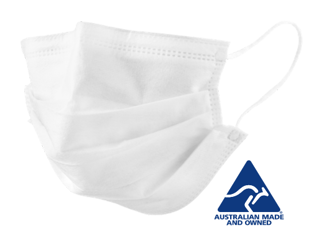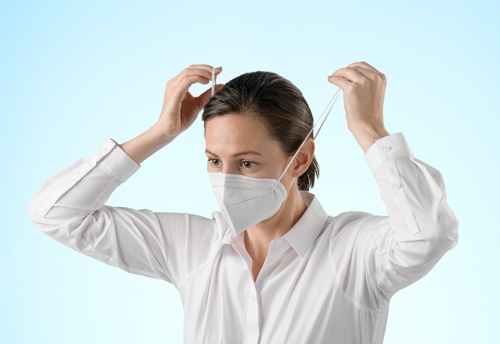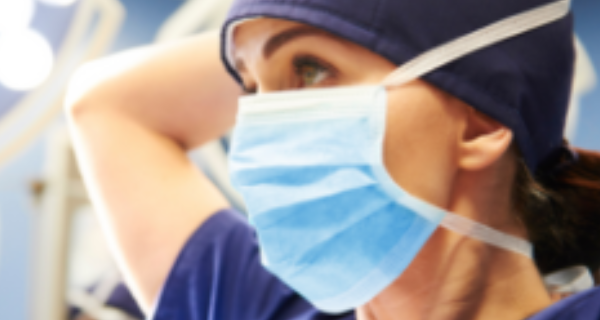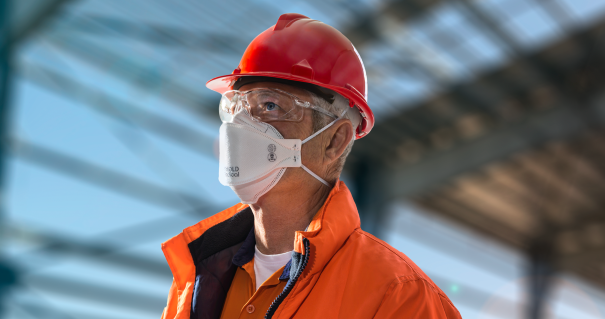While face masks may no longer be a requirement for domestic and international air travel, many travellers are still choosing to don a mask for their flights. Aeroplanes are often notorious for picking up bugs, germs and viruses, especially on long-distance flights when you’re sitting among a large group of people over a period of several hours. But that’s not all they’re good for.
Here’s why a breathable face mask is an essential part of air travel.
What are the benefits of face masks for air travel?
Face masks offer a range of benefits to passengers during air travel, especially when it comes to providing protection against respiratory infections and other health-related issues. Here are some of the key advantages that are driving travellers to continue to use face masks during travel.
Protection against germs and viruses
Since the COVID-19 outbreak, many people are more conscious of the health implications of travelling with a group of people in a small, confined space. The close quarters and recycled air pumped around aeroplanes can increase the risk of exposure to germs and viruses, including the flu, cold and Coronavirus. It’s for this reason that many travellers choose to wear a face mask to help reduce the chance of inhaling airborne particles and falling ill.

Reduced spread of respiratory droplets
If you're feeling unwell or asymptomatic with a respiratory illness, wearing a mask can also help prevent the spread of infectious respiratory droplets to others. This is particularly important in a confined space like an aeroplane, where viruses can spread quickly among passengers.
Allergy and dust protection
Masks can provide a barrier against allergens and dust, which may be present in the cabin air or during the boarding process. Not to mention, masks can reduce exposure to harmful particulates in the air, which can be useful in crowded airports or while travelling through urban areas with high air pollution
Comfort and humidity control
Aeroplane cabins often have dry air, which can irritate your throat and nasal passages. A mask can help trap moisture and provide a slightly more comfortable breathing experience throughout the flight.
Privacy and personal space
Some people wear masks to create a sense of personal space or privacy during long flights, reducing unnecessary interactions with others
What to look for when choosing a mask for travel
When it comes to choosing a face mask for travel, there are three key factors to consider—breathability, comfort and filter layers.
● Breathability: Choose a mask that is easy to breathe through, especially for long flights.
● Comfort for long wear: Extended air travel means wearing the mask for several hours, so opt for a mask with a comfortable fit and fabric. Some masks are available in different sizes with ear loop or head tie options, so you can find a fit that’s most comfortable for you.
● Filter layers: Masks with multiple layers or a built-in filter often provide better protection. That way, you
What are the best face masks for air travel?
As we’ve touched on, comfort is key when it comes to choosing the best mask for air travel, especially for long-haul flights. But with so many different types of face masks on offer, it can be difficult for travellers to find a mask that best suits their needs.
Let's take a look at some of the most popular masks for air travel.
Community face masks
Community face masks are designed for use in public spaces where social distancing can’t be achieved, making them an ideal choice for air travel. At Detmold Medical, our community face masks are made from three layers of latex-free breathable material to minimise skin irritations and allergic reactions. That said, community face masks provide the lowest level of protection compared to medical, surgical and respirator mask

Medical masks
Medical masks provide protection against bacteria and fluid splashes. Made from three layers of breathable material, medical masks are ideal if you’re after a little extra protection.
Surgical masks
Surgical masks are lightweight and designed to protect against splashes and sprays, like sneezing and coughing. They also make an ideal source control, helping to prevent droplets from escaping via the nose and mouth if you’re not feeling 100%.
They are breathable and comfortable for extended wear but may not provide a perfect seal around the face. Surgical masks are best for people who want a basic level of protection or need a mask that’s easy to wear for long periods.


Respirator masks
Respirator masks offer the highest level of protection by filtering out at least 95% of airborne particles, including viruses and bacteria.
Respirator masks are designed to fit closely around the face, creating a tight seal to provide the highest level of protection. While respirator masks provide the highest level of protection of all face masks, there are several different types of respirators to choose from, so you can find a respirator that best suits your needs. When it comes to choosing a respirator mask, it’s essential to make sure it’s fit tested to ensure it fits correctly and provides the intended level of protection.
At Detmold Medical, our respirators are made from latex-free materials which is ideal if you’ve experienced skin sensitivities or reactions to respirator masks in the past. For example, there have been some previously reported cases of allergic contact dermatitis (ACD) linked to the elastic rubber mask straps. However, patients have been able to tolerate our N95 Surgical Respirator Mask

Tips for wearing masks while travelling
Wearing a mask during travel can be essential for protecting your health, but it can also become uncomfortable over long periods. Here are a few key tips to help you stay safe and comfortable while travelling:
● Opt for masks with comfortable ear loops or straps to reduce pressure on your ears, especially for long flights. In particular, knitted headbands are skin-friendly and well tolerated,
● Look for masks made from breathable, latex free materials and ensure they are not too tight or too loose, providing both protection and comfort,
● Pack a few extra masks in your carry-on bag to replace the one you’re wearing in case it becomes damp or uncomfortable,
● For long flights, plan to change your mask every 4-6 hours (or sooner if it gets wet), as wet masks can be less effective,
● When adjusting your mask, try to handle it by the ear loops or straps, not the front, which may contain particles you’ve filtered from the air,
● Always sanitise your hands before touching your mask. This helps prevent transferring germs from your hands to your face, and
● Store your mask in a clean bag or case when it’s not in use, rather than putting it on a surface like a table or in your pocket
As the Southern Hemisphere’s largest manufacturer of high-quality face masks, Detmold Medical stocks a wide range of face masks and respiratory masks. Use our comparator to find a mask to best suit your needs, or shop from our range online to get stocked up before your next trip.




